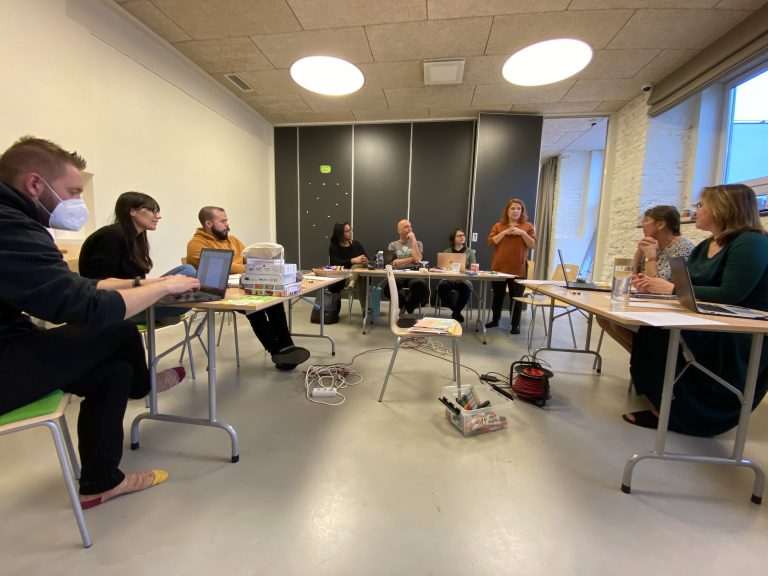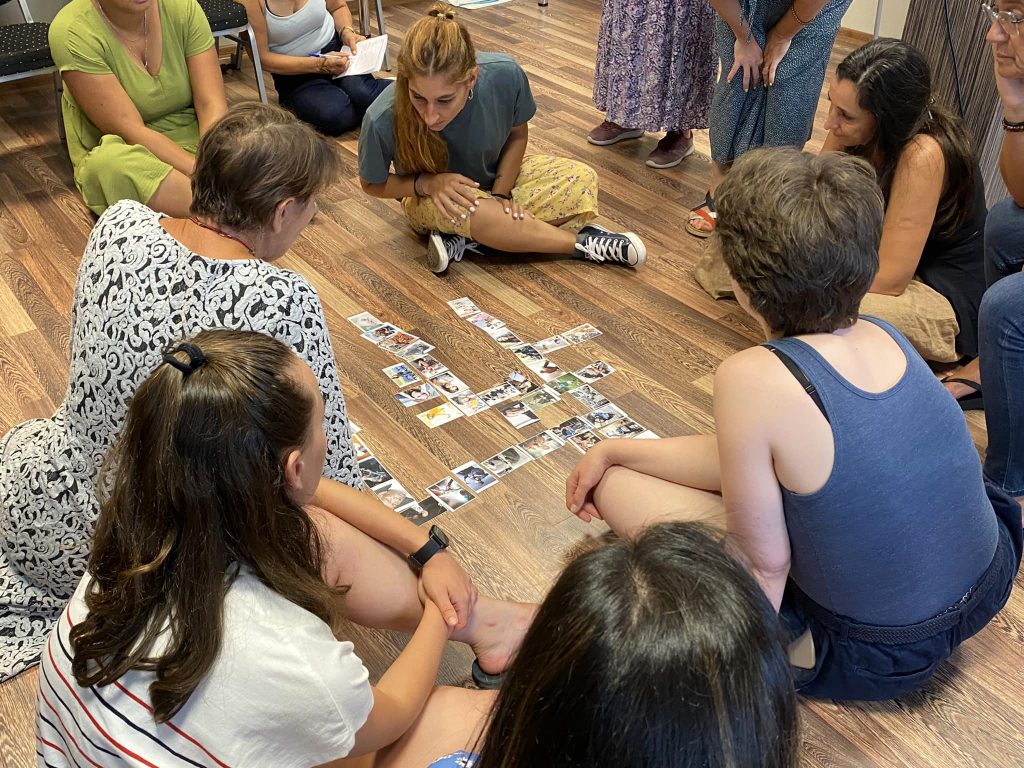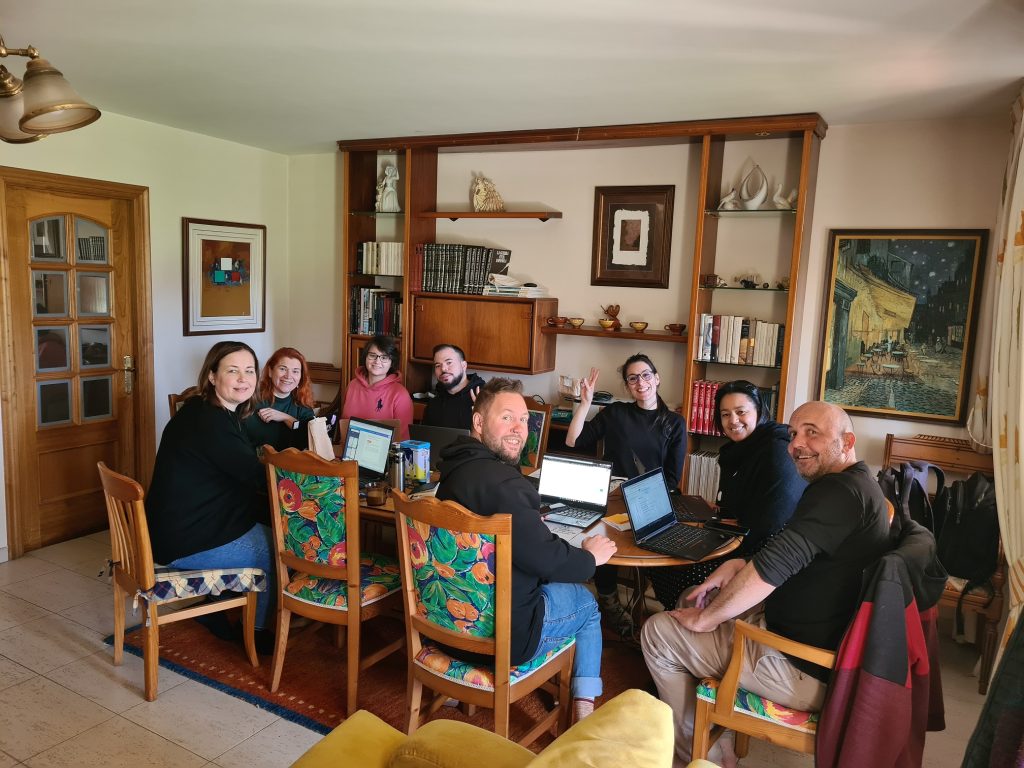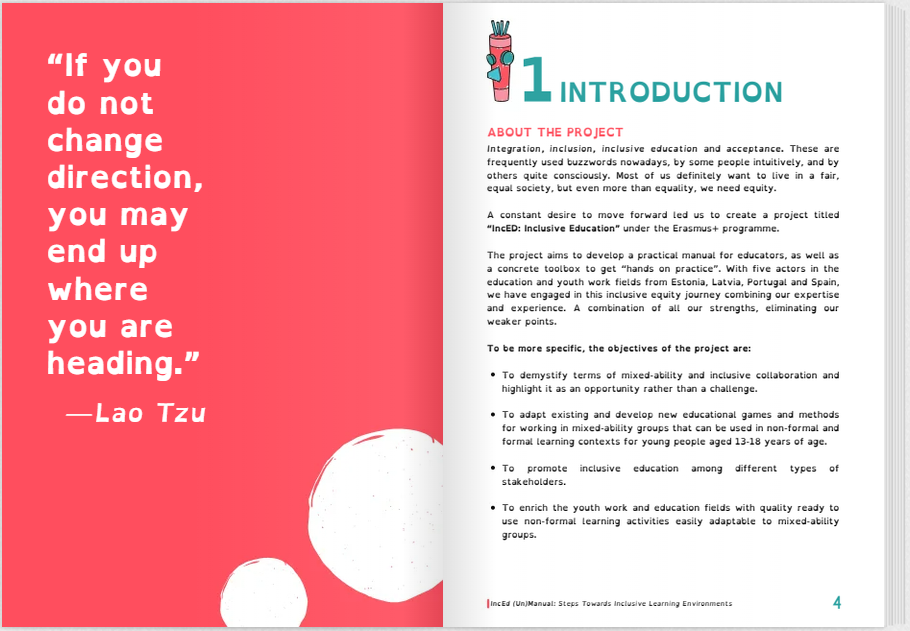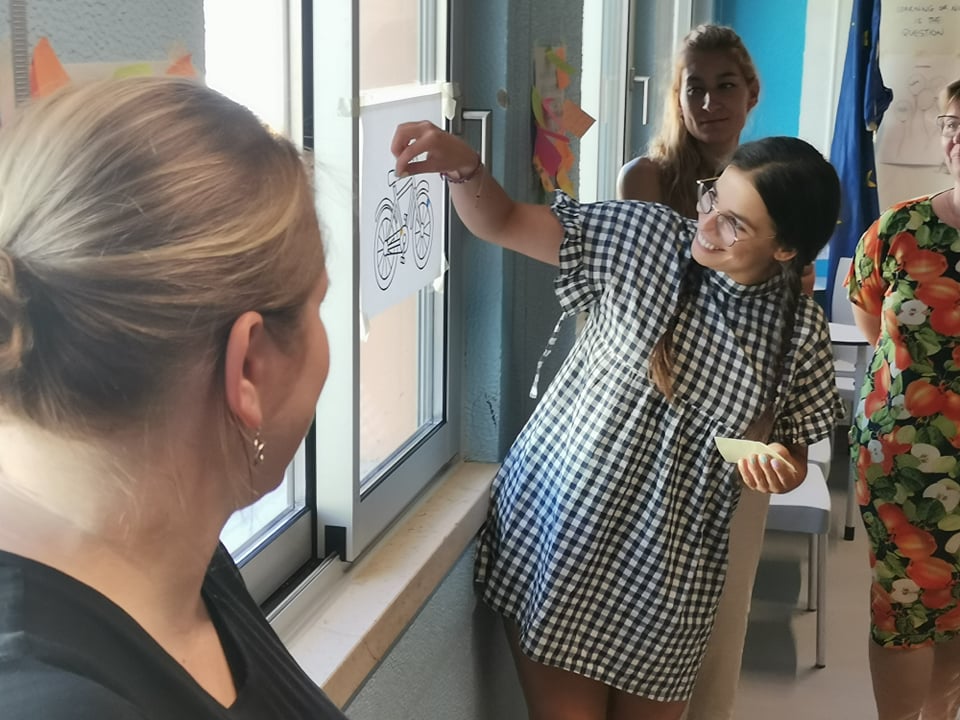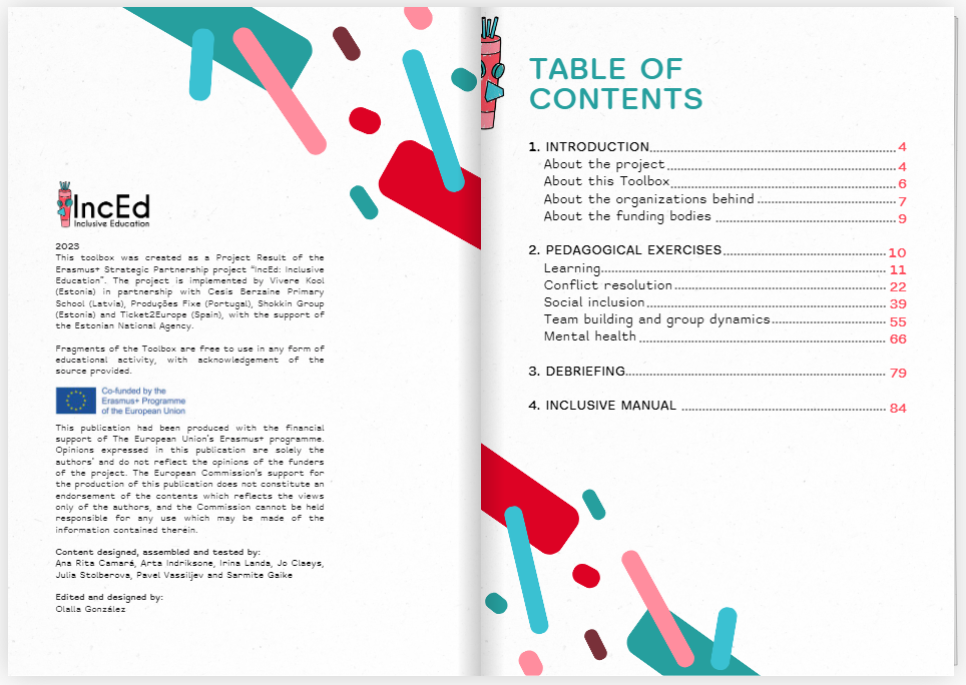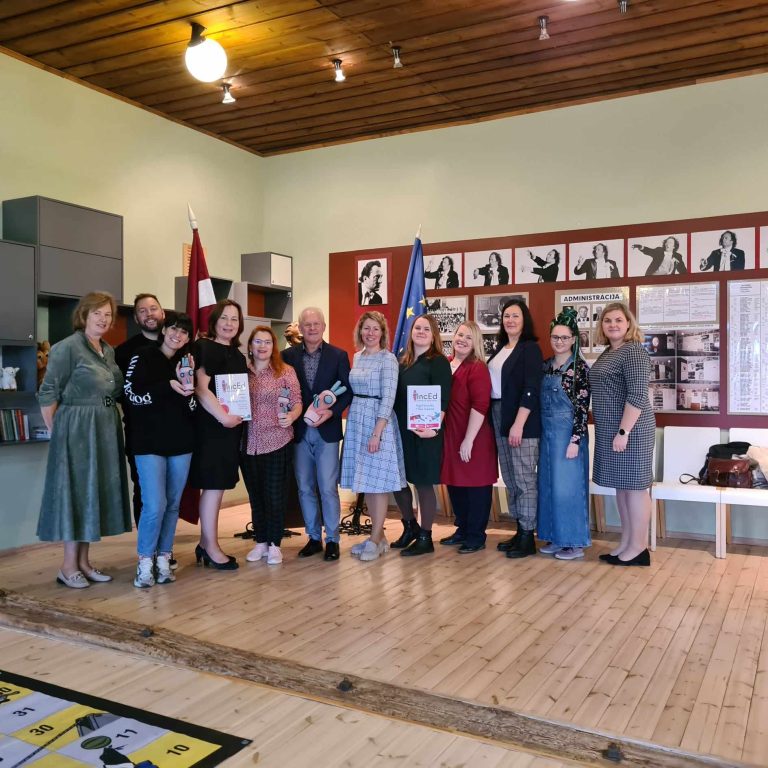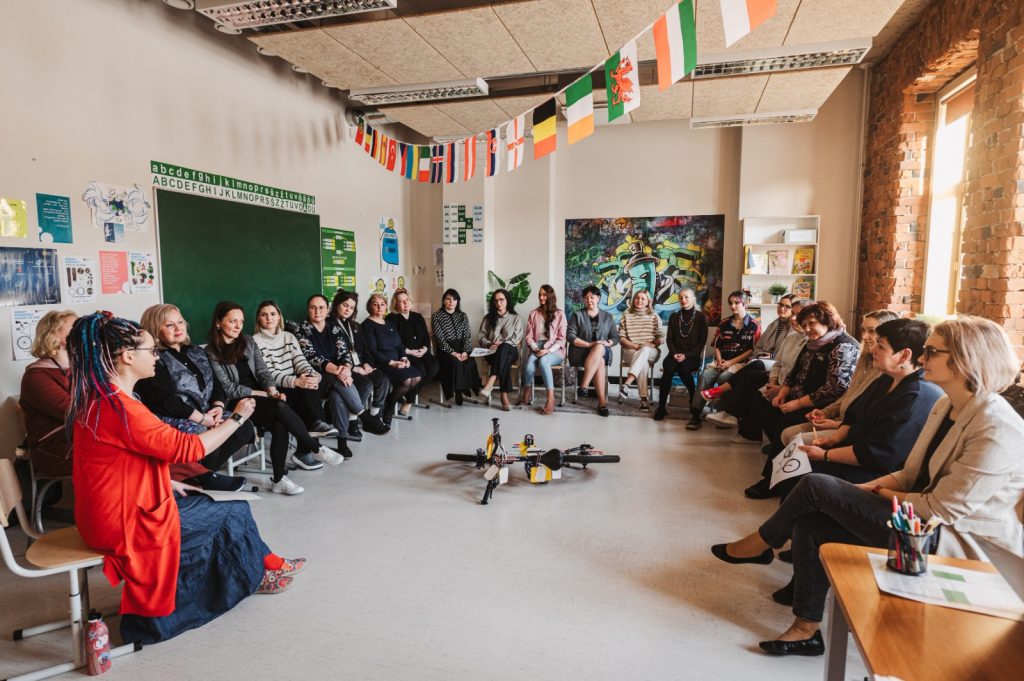The project
According to the WHO, around 10 percent of the world’s children and young people (200 million), have sensory, intellectual or mental health impairment. Estimates suggest that there are between 180 and 220 million youth with disabilities worldwide.
However, so far fewer than 10% of countries have laws that ensure full inclusion in education, according to UNESCO’s 2020 Global Education Monitoring Report. Possibilities for accessing mainstream education tend to be unavailable for children with severe disabilities, and segregation is still widespread all over Europe.
This can be countered by equipping and offering empowerment possibilities to educators and youth workers to explore the diversity in their group of learners as an asset, rather than a barrier. Turning what is labelled as a “problem” or “challenge”, into an opportunity. Creating an innovative twist, where weaknesses and threats become strengths and opportunities.
A constant desire to move forward led us to create “IncED: Inclusive Education”, a long-term project funded under the Erasmus+ KA2 programme with the main aim to analyze and adapt existing educational tools and methods to suit inclusive groups of learners in formal and non-formal learning contexts and therefore promote inclusive education approaches amongst stakeholders from the education and youth work fields.
The project objectives are:
- To demystify terms of mixed-ability and inclusive collaboration and highlight it as an opportunity rather than a challenge.
- To adapt existing and develop new educational games & methods for working in mixed-ability groups that can be used in non-formal and formal learning contexts for young people aged 13-18 years of age.
- To promote inclusive education amongst different types of stakeholders.
- To enrich the youth work and education fields with quality ready to use non-formal learning activities easily adaptable to mixed-ability groups.
Timeline

